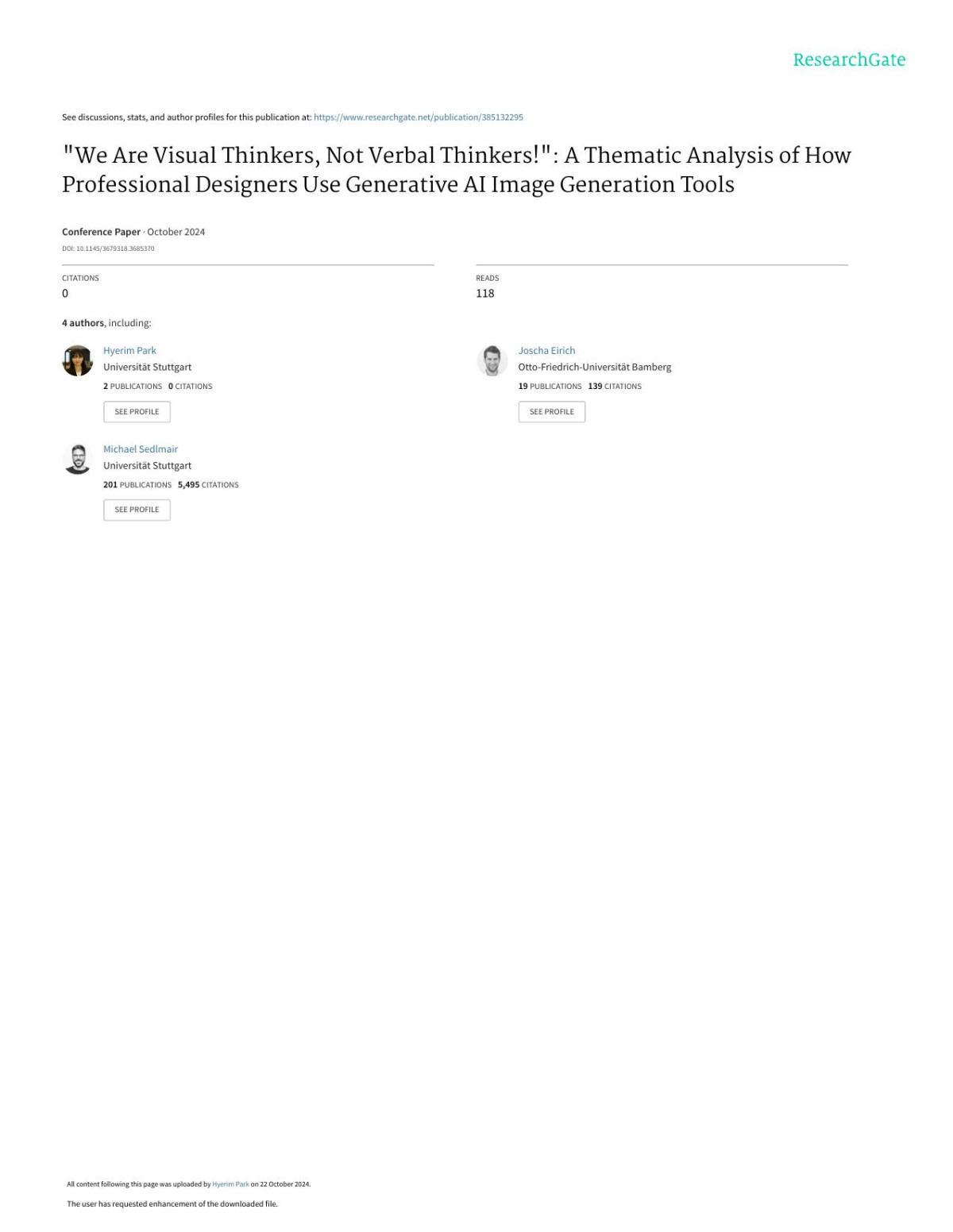

Most ebook files are in PDF format, so you can easily read them using various software such as Foxit Reader or directly on the Google Chrome browser.
Some ebook files are released by publishers in other formats such as .awz, .mobi, .epub, .fb2, etc. You may need to install specific software to read these formats on mobile/PC, such as Calibre.
Please read the tutorial at this link: https://ebookbell.com/faq
We offer FREE conversion to the popular formats you request; however, this may take some time. Therefore, right after payment, please email us, and we will try to provide the service as quickly as possible.
For some exceptional file formats or broken links (if any), please refrain from opening any disputes. Instead, email us first, and we will try to assist within a maximum of 6 hours.
EbookBell Team

4.7
96 reviewsABSTRACT
Generative artifcial intelligence (GenAI) has become increasingly popular, infuencing various creative domains. However, while broader societal perspectives have been analyzed, specifc examinations of how practitioners utilize GenAI tools to enhance their current workfows remain limited. To address this gap, we conducted a qualitative study involving 16 professional designers from the automotive industry. We aimed to identify their challenges with existing GenAI image generation tools in daily design practices. Thematic analysis revealed four key themes: (1) the need for visual input-centric multi-modal interfaces that extend beyond textual prompts, (2) the lack of support for the iterative nature of design processes in GenAI tools, (3) difculties in controlling prompts to achieve desired outputs, and (4) the signifcance of incorporating human experiences and emotions into design. Based on our fndings, we propose and discuss potential design considerations for enhancing future GenAI image generation tool interfaces.
CCS CONCEPTS
• Human-centered computing → Empirical studies in HCI.
KEYWORDS
generative AI, creativity support tools, human-AI interaction, qualitative research
NordiCHI ’24, October 13–16, 2024, Uppsala, Sweden© 2024 Copyright held by the owner/author(s).
ACM ISBN 979-8-4007-0330-0/24/10